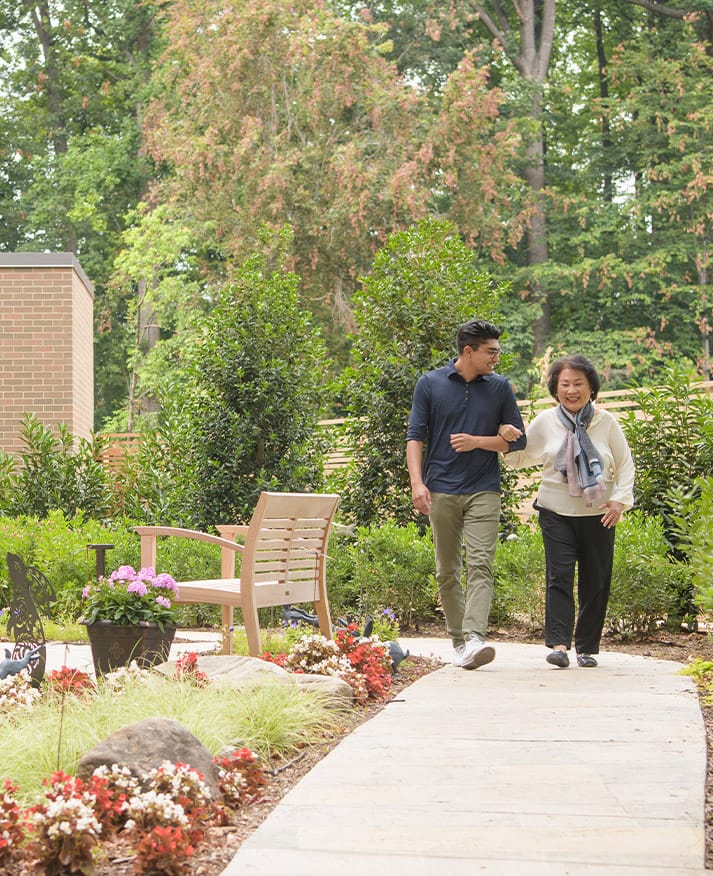How To Pay for Senior Living Care With Veteran Benefits
Learn how to utilize VA benefits for senior living.

Navigating the costs of senior living can be challenging, but veterans of the United States Armed Forces have access to unique benefits that can help manage these expenses. Understanding how to utilize these benefits can significantly impact planning for senior living care. We’ve compiled an overview of the key benefits that can help cover costs associated with senior living.
Understanding Veterans Benefits for Senior Living
Qualified veterans with active military service may be eligible for VA health care benefits. Depending on the veteran’s specific health needs and service history, VA health care benefits can cover long-term care, such as nursing homes and assisted living facilities.
Key Programs That May Cover Some Senior Living Costs
Specific VA programs, such as Aid & Attendance and Housebound Allowance, support veterans requiring long-term care. These benefits are critical for those who are housebound and who need assistance with daily activities.
Aid & Attendance (A&A)
This benefit is designed for veterans and surviving spouses who require assistance with daily activities or are housebound. Receiving A&A can significantly increase monthly pension amounts to help cover the costs of care needed.
Housebound Allowance
Veterans who receive a VA pension and are substantially confined to their homes because of permanent disability may receive additional funds to help with in-home care or senior living expenses. However, veterans cannot collect both Housebound Allowance and A&A simultaneously.
Eligibility for Veterans Benefits in Senior Living
Navigating veterans benefits for senior living can be complicated but crucial for maximizing the support available for veterans transitioning into senior living communities. Here’s a concise breakdown of eligibility requirements to help you understand how you or your loved one might qualify for these benefits.
Basic Eligibility Criteria
To qualify for VA health care benefits, veterans must have served in the active military, naval, or air service and received anything other than a dishonorable discharge.
Veterans who enlisted after September 7, 1980, or entered active duty after October 16, 1981, must have served 24 continuous months or the entire period they were called to active duty, with specific exceptions. The requirement for minimum duty might not apply if one of these is true:
- The veteran was discharged for a disability caused by or made worse by active duty.
- The veteran was discharged for a hardship, or “early out.”
- The veteran served before September 7, 1980.
Veterans who served in specific locations and during certain times of the Vietnam War era will also be eligible for VA health care.
Reserves and National Guard members must have been called to active duty by a federal order, completing the full period of active duty. Training status alone does not qualify for VA health care.
Enhanced Eligibility
Veterans may qualify for enhanced eligibility status, placing them in higher priority groups. Examples include:
- Receiving VA compensation for service-connected disabilities.
- Discharge due to a disability linked to or aggravated by service.
- Receipt of a VA pension.
- Designation as a former POW or recipient of Purple Heart, Medal of Honor, or similar recognitions.
- Exposure to certain toxic substances or hazardous materials.
- Financial eligibility based on income, potentially qualifying for free or reduced-cost care.
Financial Planning With a VA Pension
Understanding how VA pensions can be used in conjunction with A&A and Housebound benefits is crucial when calculating how to pay for a senior living community. These pensions provide a monthly income for veterans with limited income and assets, and eligibility for these pensions is a prerequisite for receiving A&A or Housebound benefits.
Applying for Benefits
Veterans and their families are encouraged to apply for benefits early to ensure they have access to the support they need when transitioning to senior living. Consulting with VA offices or accredited representatives can provide guidance tailored to individual cases.
Making an Informed Decision
Choosing the right senior living option involves careful consideration of each veteran’s specific needs, preferences, and financial situation. Veterans and their families are encouraged to utilize all available resources, including VA benefits, to make informed, supportive decisions that honor the veteran’s service and sacrifice.
For more detailed information on applying for VA benefits and to find local support resources, veterans and their families should visit the official VA website or contact a VA benefits advisor.


